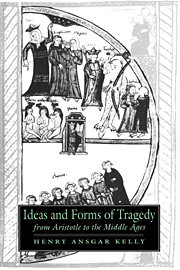3 - Early medieval clues and conjectures
Published online by Cambridge University Press: 22 September 2009
Summary
Most of the authorities we have studied from classical times were familiar with the conventions of the stage, and assumed that their readers shared this knowledge. But later generations of readers were totally in the dark about the most elementary characteristics of what went on in the theaters, and were understandably puzzled or misled by writings that took firsthand, or at least hearsay, experience for granted. We shall be dealing chiefly with lexicographers and commentators, who produced brief explanations of particular words or piecemeal glosses rather than sustained and coherent discourses.
ISIDORE OF SEVILLE
By far the most important encyclopedist–lexicographer of the early medieval period was St. Isidore, bishop of Seville from 599 to 636. His most important work, Etymologies, or Origins, attempts to cover all areas of learning. It is made up of short entries arranged in various categories. Isidore often starts out by attempting to give the root meaning of the word under consideration, which sometimes results in a small-scale history of the development of an institution or practice. But for the most part he reveals a quite static and simple view of his subjects.
Many modern-day scholars of drama who have used Isidore's work attribute more knowledge to him than he actually possessed. It is vital that we face the hard facts from the beginning.
In the first place, all the theatrical activity of the ancient world had come to an end by Isidore's time.
- Type
- Chapter
- Information
- Publisher: Cambridge University PressPrint publication year: 1993



